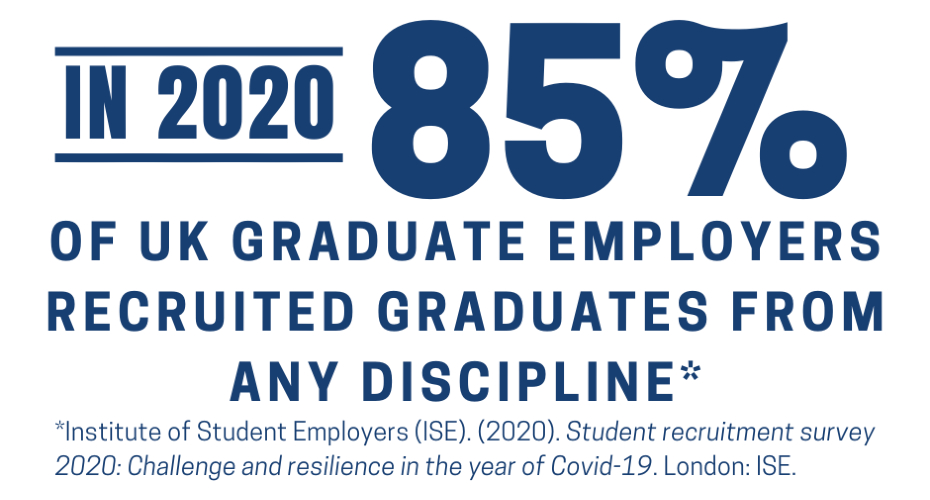.jpg)
Zac Porter, BA Archaeology (2017)
'It doesn't matter what you study, it's about demonstrating the transferable skills which you have developed through your course.'
Assistant Project Manager (Infrastructure), Turner & Townsend

What can I do with a degree in Archaeology?
The below offers a selection of the destinations University of Exeter graduates from Archaeology have gone on to. The information below is not exhaustive, however it does highlight the range of job and further study options available to you after your studies.
If you would like to learn more about any of the jobs listed below you may wish to browse the job profiles on the Prospects website.
Careers with a degree in Archaeology
Recent Exeter Archaeology graduates have entered a wide range of careers. Some recent examples include:*
- Account Executive
- Care Leaver Navigator
- Communications Assistant
- Fee Collections Assistant
- Graduate Archaeological Consultant
- Healthcare Lecturer
- Laboratory Technician
- Medical Laboratory Assistant
- Ministry Apprentice
- Police Officer
- Post-excavation Archaeologist
- Recruitment Consultant
- Retail Services Analyst
- Trainee Anatomical Pathology Technician
- Trainee Fingerprint Examiner
Many employers accept applications from graduates with any degree subject, so don't restrict your thinking to the jobs listed above.
Other resources:
- Employment sector pages
- Panopto - Archaeology students can explore their career options via this interactive webcast video.
- Prospects to browse a range of job profiles
- Graduate Outcomes Data to do a deep dive into the data on what Archaeology graduates do after their degree
- LinkedIn Exeter Alumni Tool (you will need to be logged in to LinkedIn to access this functionality). For a link to this tool and advice on how to use it visit our LinkedIn page.
* Data taken from aggregating the responses from full-time, first degree, UK domiciled students who completed 2017/18 and 2018/19 Graduate Outcomes surveys (ordered from most popular to least).
Employers of Exeter alumni with a degree in Archaeology
Recent Exeter Archaeology graduates have joined a wide range of employers. Some recent example include*:
- Arcadis
- CFA Archaeology
- CSR Group
- Cumbria Constabulary
- Imperial War Museum
- Jackson Hogg
- Metropolitan Police
- NHS
- SPF Private Clients
- St Neots Evangelical Church
- The University of Exeter
- Waterscan
- World Heritage UK
- Young Devon
Other resources:
- LinkedIn Exeter Alumni Tool (you will need to be logged in to LinkedIn to access this functionality). For a link to this tool and advice on how to use it visit our LinkedIn page.
* Data taken from aggregating the responses from full-time, first degree, UK domiciled students who completed 2017/18 and 2018/19 Graduate Outcomes surveys.
Skills
An Exeter Archaeology degree will arm you with some great employability skills including:
- Use diverse sources of evidence including excavated, documentary, representational, observational, artefactual and environmental
- Understand the importance of recovering primary data through practical experience
- Critically apply methodologies for quantifying, analysing and interpreting primary data
- Understand the concepts and application of scientific methods used in collecting, analysing and interpreting archaeological data
- Interpret spatial data, integrating theoretical models, traces surviving in present-day landscapes, and excavation data
- Practise field work and laboratory techniques
Further Study
Around 56% of Exeter graduates in Archaeology go on to pursue further study within 15 months of completing their undergraduate degree. Some recent progression routes include:
- MA Archaeology
- MSc Bioarchaeology (Forensic Anthropology)
- MSc Bioarchaeology (Human Osteology)
- MSc Bioarchaeology (Zooarchaeology)
- MSc Experimental Archaeology
- MSc Forensic Anthropology and Archaeology
- MA History
Useful resources:
- Find a Masters
- Masters Compare
- Masters Portal
- Prospects
- University of Exeter PG Study
- LinkedIn Exeter Alumni Tool (you will need to be logged in to LinkedIn to access this functionality). For a link to this tool and advice on how to use it visit our LinkedIn page.
* Data taken from aggregating the responses from full-time, first degree, UK domiciled students who completed 2017/18 and 2018/19 Graduate Outcomes surveys.
**Individual course names were taken from the University of Exeter's Career Destination survey (2018/19 & 2019/20) as this information is not collected within the Graduate Outcomes survey.
